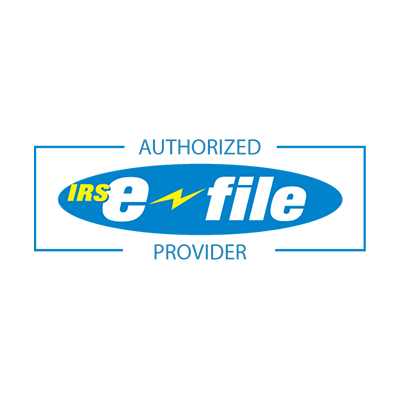As a truck driver, if you fall into the category of owner-operator, you are essentially responsible for running your own business. Like any small business owner, this means you’re the person managing the finances. While trucker bookkeeping—the practice of maintaining records of your business’ financial transactions—is similar to what any small business does, the nature of your industry means this task comes with unique demands.
Since truckers are constantly on the road, you’re probably managing everything from the cab of your truck, which may not feel like the ideal office space. If you don’t make staying organized a primary goal from the beginning, you’ll find yourself wondering if you’re forgetting something down the road (no pun intended).
How Organized Are You?
While managing a business on the road can be challenging, implementing a few systematic measures will set you up for success in trucker bookkeeping.
Maintaining a Detailed Logbook
Organization starts with maintaining a detailed logbook to track the following:
- The specific date and time of each trip, delivery, or transaction
- The start and end locations of each trip, including the city and state
- The beginning and ending odometer readings for each trip, indicating the total miles driven
Documenting Income and Expenses
Your logbook should also cite your income and expenses. It is critical to track all income and note the sources. The amount earned from hauling loads, including date and details of each transaction, as well as any additional income from surcharges, bonuses or reimbursements needs to be well-documented for tax purposes and will help you better manage your business.
Likewise, tracking expenses is an integral part of trucker bookkeeping. Expenses include fuel, day-to-day operating expenses such as parking fees, tolls, permits for overweight or oversized loads, scales fees, regular vehicle maintenance, including oil changes, tire replacements and repairs, meals on the road, truck washes and overnight accommodations.
Additionally, you’ll need to keep track of expenses like equipment financing, commercial trucking insurance, licenses such as CDL, and permits. Don’t forget to include payments for mobile phone bills, apps, and software subscriptions connected with your trucking business. Be aware of the various laws and regulations that may vary from state to state, such as IFTA permits, which involve tracking mileage and fuel in each jurisdiction so taxes can be apportioned.
Finally, be sure to save all receipts, invoices and other documentation that substantiate your income and expenses.
Are You Budgeting?
Setting a realistic budget is essential whether it pertains to your personal finances or your business finances. Equally important is keeping personal and business-related finances separate. Budgeting provides a clear picture of revenue and allows owner-operators to exercise informed oversight and intentionally allocate resources, resulting in better financial decisions; it is how you know where every dollar is going (or supposed to go).
Realistic budgeting is a cornerstone of successful trucker bookkeeping. While many expenses are fixed, some are variable, such as fuel and repairs, so it is important to account for potential variance. Once you set a budget, it is important to stick to it and to monitor expenses daily to avoid overspending. Organized bookkeeping habits also gives you the chance to analyze spending patterns on a regular basis to ensure adherence to the budget, make necessary adjustments, and identify areas that could use improvement.
How Does Responsible Trucker Bookkeeping Prepare You for Taxes?
Making responsible trucker bookkeeping habits part of your daily routine yields positive results. The more frequently you log your income and expenses, the more accurate your tax reporting will be; when it’s fresh on your mind it’s more likely to be correct and less likely to go unreported. This allows you to avoid audits and minimize tax liability, which keeps you out of the crosshairs of the IRS. Finally, it maximizes deductions, which means more money in your pocket at the end of the day.
A Few Tips
How can you help yourself stay on top of bookkeeping activities? As mentioned previously (but it bears repeating), keeping personal and business finances separate is imperative. This means maintaining separate business bank accounts and credit cards. Once your business and personal expenses have become mixed together, your job gets a lot harder come tax season.
It’s also important to stay up to date on industry regulations and laws. You’re a business owner, after all, and that requires maintaining a certain level of awareness regarding the rules you need to follow. Simply pleading ignorance will not save you from potential fines, penalties and other headaches.
Finally, before you develop potentially bad trucker bookkeeping habits and ineffective processes, proactively seek advice from tax professionals. They’ll be best equipped to give you specific answers to any questions you have.
Remember to Pay the Heavy Vehicle Use Tax (HVUT)
Again, for trucker bookkeeping to be worthwhile, it must be a year-round activity. Even when it’s a daily practice, there’s so much to remember that something is likely to slip your mind. Since the Heavy Vehicle Use Tax (HVUT) isn’t paid with the rest of your business taxes, it is easy to overlook, which is why i2290 makes filing the Form 2290 and paying your HVUT as simple as possible. Create an account on i2290 today and answer a few questions about your vehicle and your business. Then for a small fee, we will do the calculations for you and generate your stamped Schedule 1 in a matter of minutes.
You carry enough heavy loads; when it comes to taxes, let us lighten the load for you and we will handle the tedious 2290 filing process on your behalf.Special note: This article is for general purposes, and is not intended to provide, and should not be relied on for tax, legal, investment, or accounting advice. The best way to ensure you’re properly filing and paying appropriate taxes is by following IRS regulations and consulting with a tax professional.


